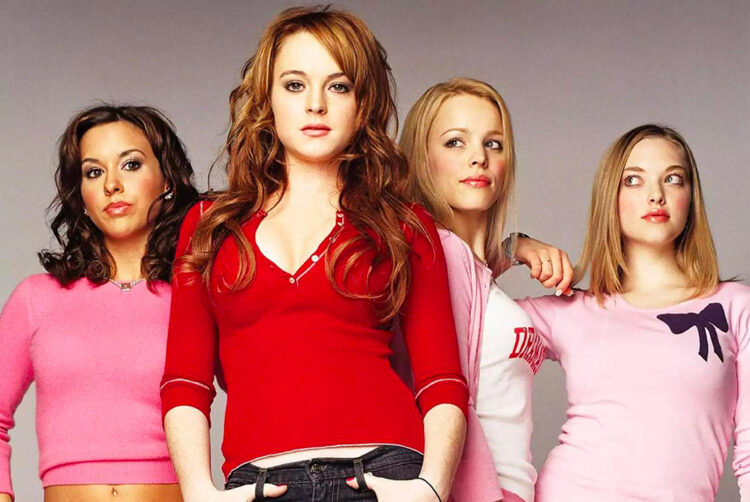Our surprise guest at The Future of Media: an elephant

Opinion: 100% Media 0% Nonsense
If the idea of having an elephant at a media conference doesn’t make sense, it’s perfect. Because the trends we’ve seen lately in tech and media shouldn’t make sense either.
In just two days The Media Leader team will be back at our events home in the City of London for The Future of Media — two days of talks, interviews, discussions and debates about what lies ahead for media and advertising.
The theme is Media 3.0: a recognition that consumer attitudes to media are changing, the skills needed to work in this industry are evolving, and advertisers need to adapt their strategies to reach people through media.
So there’s a lot to talk about, not just on Wednesday and Thursday but in the weeks following, too, as we dissect and analyse the key takeaways and conclusions.
One thing you will see, if you attend The Future of Media this week, is an elephant. A very large, dominant elephant, sitting in the corner of the room to observe proceedings. Try as you might, the elephant is not to be removed, and we’ll all just have to mind our own business while the elephant does its own thing.
The elephant, of course, represents the looming, existential issue that media owners and advertisers worry most about, but dare not talk about much, or at all, because they simply have nothing constructive to say.
The elephant is artificial intelligence and how it will impact this industry in the coming years (more than it has done already).
Tech and media trends don’t make sense
You only need to compare share price movements over the last year. All the major tech companies have seen a massive AI dividend since the end of 2022, when ChatGPT so powerfully showed the world how easy it had become to use generative AI platforms to carry out complex (albeit limited) tasks just by feeding simple commands to a chatbot.
Compare that to the world’s biggest media conglomerates, whose share prices have dwindled over the last 12 months as their various streaming platforms have struggled to add the kind of subscriber numbers that convince Wall Street they are good long-term bets.
So on the one hand, tech platforms have returned to growth on the basis that the AI tools they are developing will provide long-term value, while media companies are struggling because there is apparently not enough demand for their content.
The thing is, this shouldn’t make sense.
AI, or generative AI, is a tool. As highly sophisticated and useful as it may be, there is no reason to believe that a tool developed by Meta, or Google, or Microsoft, is going to be significantly better than that of its rivals. They are built on large language models; while the algorithms are sophisticated the idea behind them is really quite simple and therefore fungible — the AI will get better and better at interpreting data, understanding questions from humans, and creating content for various purposes. I struggle to see how Big Tech retains any competitive advantage with AI; Meta in particular has become a Silicon Valley expert in cherry-picking its competitors’ best ideas, just as it has done various times with Snapchat and most recently, in creating a Twitter clone called Threads for Instagram.
Technology will always advance media but it will never be the differentiator or the source of competitive advantage. Content will always be the the thing that makes a media company successful (or not) in terms of attractiveness to subscribers or advertisers.
And what do the large language models for AI depend on in order to keep getting more powerful? Quality content.
Protecting what truly matters: quality
So it’s good to see the BBC announce last week that it will “protect the interests” of licence-fee payers by attempting to block content scraping. I use the word “attempt” because it’s not clear how much scraping has been done already and how it will prevent this happening in future. The cat may well be out of the bag.
This will be a key question we explore at The Future of Media this week and one I’ll hope to ask Dominic Carter, publisher of The Sun at News UK, during an interview.
Because if media owners are sitting on a gold mine of content — the secret sauce that will make AI as transformational as everyone keeps saying it’s going to be — then media needs to do a much better job of protecting its value. Clearly, it needs to tell a better story around AI, too.
Because if the story remains solely about the changing nature of media consumption, then media will continue to face elephant-sized problems.
I wrote recently that broadcasters don’t have a fragmentation problem, they have a TikTok problem. In the short term, their value is perceived to be a function of how many people sign up to their streaming platforms. But their long term value needs to be rooted in how well they are able to use content in different ways that consumers demand, whether that’s short form or otherwise.
The writers’ strike in the US, when seen through this lens, was a disaster for content creators and a massive victory for Big Tech. For all the complaining by American unions about payments to screenwriters and production staff falling, their anger seemed to be directed at greedy TV and movie conglomerates, when in fact the real danger is Big Tech. The danger is that original content continues to be ‘sliced and diced’ for the sake of generating billions of views on social media, while none of that additional value is reflected in the effort or genius that went into creating it in the first place.

A interesting case in point is Paramount Pictures, which last week decided to put an entire movie, Mean Girls, on TikTok for free in 23 chunks.
While this probably worked very well as a short-term marketing gimmick, and may have had some benefit in driving new subscribers for Paramount Plus, it doesn’t do much to inspire confidence that Paramount has an effective plan for long-term content monetisation, whether its through negotiating new deals with TikTok and other social media, or getting serious about protecting content from AI scraping.
Because, if you’re putting out one the most commercially and culturally successful movies of all time for free on social media, you’re relegating its value by placing it alongside all the user-generated rubbish that social media pumps out every single minute. Even though it’s fair to complain that TV and movies are generally not very good, compare that to the vast majority of trash put out on social media. For every genius influencer, there are a million people putting out boring and badly produced nonsense, but unfortunately there’s no barrier to anyone with a smartphone and internet ‘doing their thing’.
A tool is just a tool, while great content is always a reflection of creative genius and cultural expression. We need to make sure what makes media great is properly valued as it becomes commoditised by the elephant in the room.
 Omar Oakes is editor-in-chief of The Media Leader and leads the publication’s TV coverage.
Omar Oakes is editor-in-chief of The Media Leader and leads the publication’s TV coverage.
‘100% Media 0% Nonsense’ is a weekly column about the state of media and advertising. Make sure you sign up to our daily newsletter to get this column in your inbox every Monday.
THIS WEEK: Omar will interview Havas CEO Yannick Bolloré, S4 Capital and WPP founder Sir Martin Sorrell, and The Sun EVP publisher Dominic Carter at The Future of Media in London.



